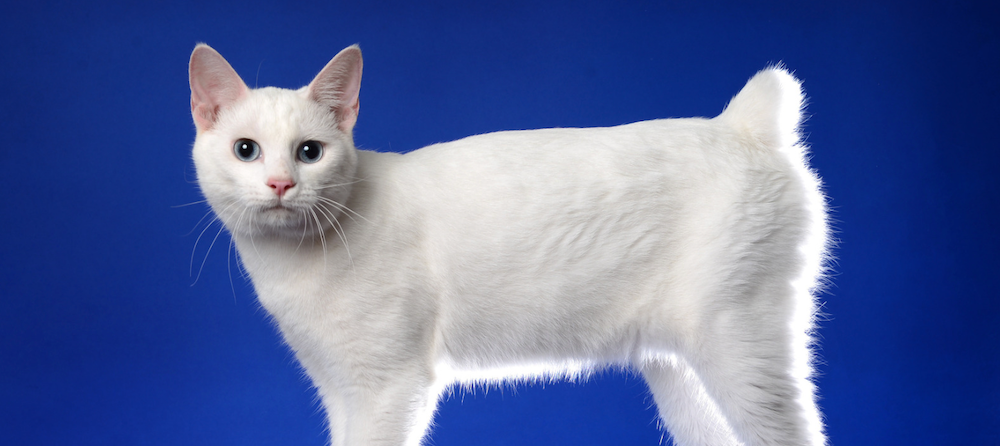The Japanese Bobtail boasts a history as rich and fascinating as its homeland. Legends abound about their origins, with some tales weaving them into the fabric of Japanese folklore. One popular story suggests that these bobtailed beauties were lucky charms for merchants, bringing prosperity to their shops. Another legend claims they were created by a vengeful cat who singed its tail off by sitting too close to a hot pot – a cautionary tale for kitties everywhere, perhaps!
While the exact origins of the Japanese Bobtail remain shrouded in a bit of mystery, what we do know is that they have been a beloved companion in Japan for centuries. Depictions of these bobtailed cats can be found in ancient woodblock prints and pottery, showcasing their enduring popularity throughout Japanese history.
A Purr-sonality You’ll Adore: The Japanese Bobtail’s Charming Demeanor
Beyond their captivating looks, Japanese Bobtails possess a personality that is simply delightful. These social butterflies thrive on human interaction and love to be included in all the family fun. Whether you’re curling up on the couch for a movie night or whipping up a delicious meal in the kitchen, your Japanese Bobtail will likely be right by your side, offering companionship and playful interruptions (because, let’s face it, who can resist a kitty batting at a whisk?).
Their intelligence is another endearing trait. Japanese Bobtails are quick learners and can be easily trained with a little patience and positive reinforcement. They’ll happily master tricks, chase after feathery toys, and even learn to walk on a leash (though a stroll through the park with your bobtailed buddy is sure to turn a few heads!).
But wait, there’s more! These playful felines also have a reputation for their gentle and affectionate nature. They love to cuddle up in your lap for a petting session and will shower you with head boops and purrs. They also get along well with children and other pets, making them a wonderful addition to a multi-pet household.
Built for Fun and Exploration: The Japanese Bobtail Physical Prowess
The Japanese Bobtail is a medium-sized cat with a slender, athletic build. Their most striking feature, of course, is their tail – or rather, the lack thereof. These tails come in all sorts of shapes and sizes, from short and stubby to kinked and pom-pom-like. No matter the shape, their tails are a constant source of amusement, twitching and wagging with excitement as they stalk a feathered toy or explore their surroundings.
These energetic felines are natural-born athletes. Their agility and jumping prowess are truly impressive, and they’ll happily scale bookshelves, curtains, and anything else that piques their curiosity. To keep your bobtailed friend happy and entertained, providing them with plenty of climbing opportunities (cat trees, scratching posts) is essential.
A Lifespan of Love: Caring for Your Japanese Bobtail Companion
Japanese Bobtails are generally healthy cats with a lifespan of 13 or more years. Like all cats, they thrive on a high-quality diet, regular veterinary checkups, and plenty of exercise and playtime. Their short coats are relatively easy to maintain with a weekly brushing to remove loose hair and prevent matting.
Keeping their playful spirits in mind, providing them with enrichment activities is important. Interactive toys, puzzle feeders, and even hiding treats around the house will keep them mentally stimulated and prevent boredom. Remember, a happy cat is a healthy cat!
A Bobtail Tailored for You: Bringing Home Your Feline Friend
If you’re seeking a playful, intelligent, and affectionate companion, the Japanese Bobtail might just suit you purrfectly. These charming felines will bring joy, laughter, and a touch of whimsy to your life. Before welcoming a Japanese Bobtail into your home, be sure to do your research and find a reputable breeder. Adoption is another wonderful option, and there may be Japanese Bobtails or bobtail mixes waiting for their forever homes at your local animal shelter.
